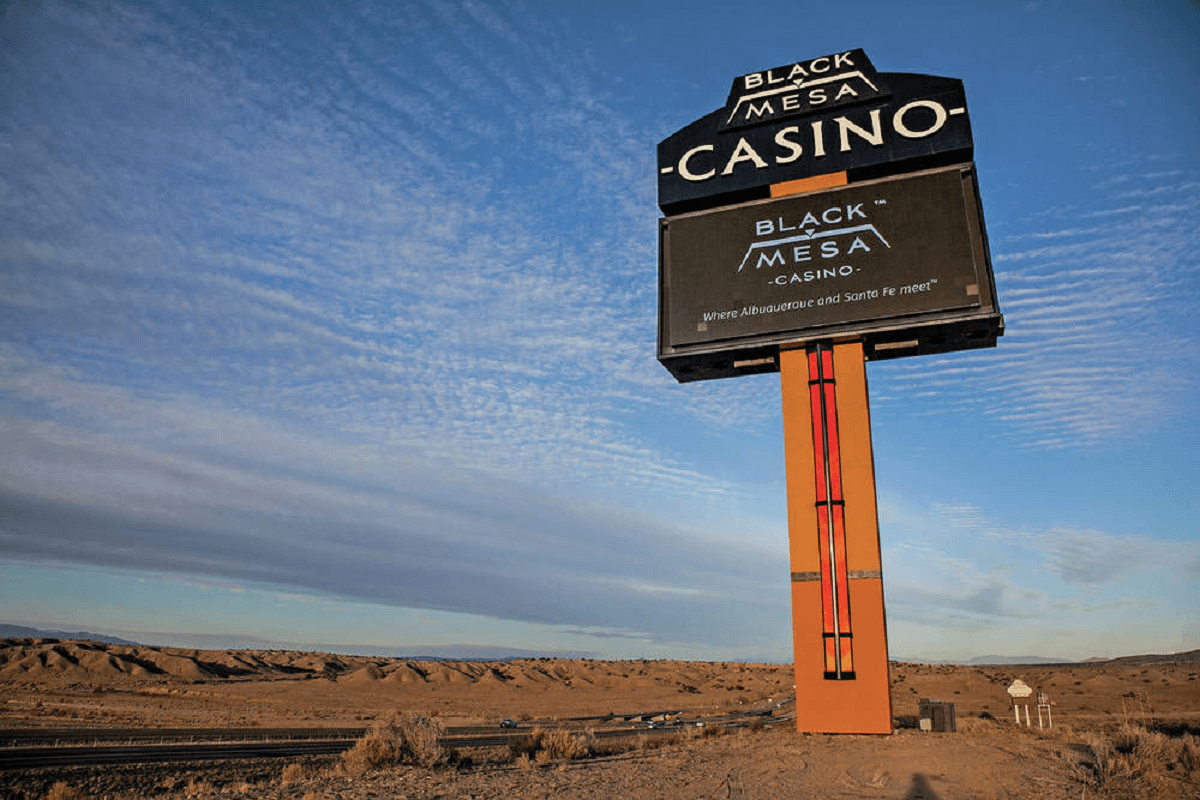As the U.S. states continue to legalize sports betting at different rates, progress in some states has been stalling. New Mexico is one of the states that have been making headlines in the past few months over their opinions on gaming issues.
The Native American leaders in New Mexico are against the proposal by the non-tribal racetracks and casinos seeking to reconstruct the gaming industry and make it look like Las Vegas-style gaming.
By allowing the proposed changes, New Mexico is forecasting a net $62 million revenue gain in taxes, according to industry experts. The government is hoping to find ways to fund policies aimed at curbing the effects of COVID-19 effects in the state, and feels allowing commercial casinos and more gaming could help.
What’s the Current Gaming Status in New Mexico?
Similarly to other Native American tribes in the United States, New Mexico tribes preserve gaming compacts. These compacts give the tribes virtual control over all the gambling activities happening in the state. The only exception is that the state comes with its racinos, which allow for 600 slot machines for almost 18 hours a day.
According to the tribes, expanding the gaming industries beyond the tribal level violates the compact agreement they made with the government in 2015. In the compact agreement, various tribal gambling venues provide 2 to 10.5 percent of revenue, but this is contingent on them being the only operating gaming venues in respective regions.
However, the state suggests that it will cancel the existing compacts and instead allow racinos and commercial casinos to run for an unlimited amount of time. These proposed changes will allow for as many slot machines, online gaming, table games, and even sports wagering options as they want.
The New Mexico Tribe’s Take
During a meeting on October 19, 2020, the tribes said in a legislative session that if New Mexico was to allow more slot machines, table games, sports wagering, and online gambling, that it would change the market.
During the meeting, the tribes also said that allowing more gaming meant that their exclusivity provision was violated, according to the current revenue sharing compacts shared between tribes and the state. The tribal demonstrated that they wouldn’t have the means to continue bringing in money from their various communities, as agreed in 2015.
During the hearing, Stuart Paisano, the governor of Sandia Pueblo, stated that the gaming industry’s expansion should be out of the question. He suggested that the proposal could lead to more problems rather than create enough revenue as the government wants.
In his statement, Paisano said that the legislation represented a renewed challenge to New Mexico’s economic security. He also said that it was a reckless attempt to expand private wealth at residents’ costs to provide necessary government services.
Another issue that the tribes raised concerns about was how New Mexico is failing to include them in any gambling discussion. The tribes accused the government of intentionally hiding development about gambling from them. They said that the state scheduled a legislative hearing for the existing members of casinos and racinos.
The members of tribal nations were left out and only given the schedule under short notice before the hearing could take place. Currently, there are more than 12 Native American tribes in New Mexico, all of whom have federal legal support.
The issue in New Mexico, unfortunately, is common in some other U.S. states as well. Native tribes across the U.S. are unwilling to negotiate terms for allowing commercial gaming, and they are especially upset because the new legislation allows for sports betting. The tribes feel that the timing is inappropriate considering the deficit that the COVID-19 pandemic has brought on them as well.




